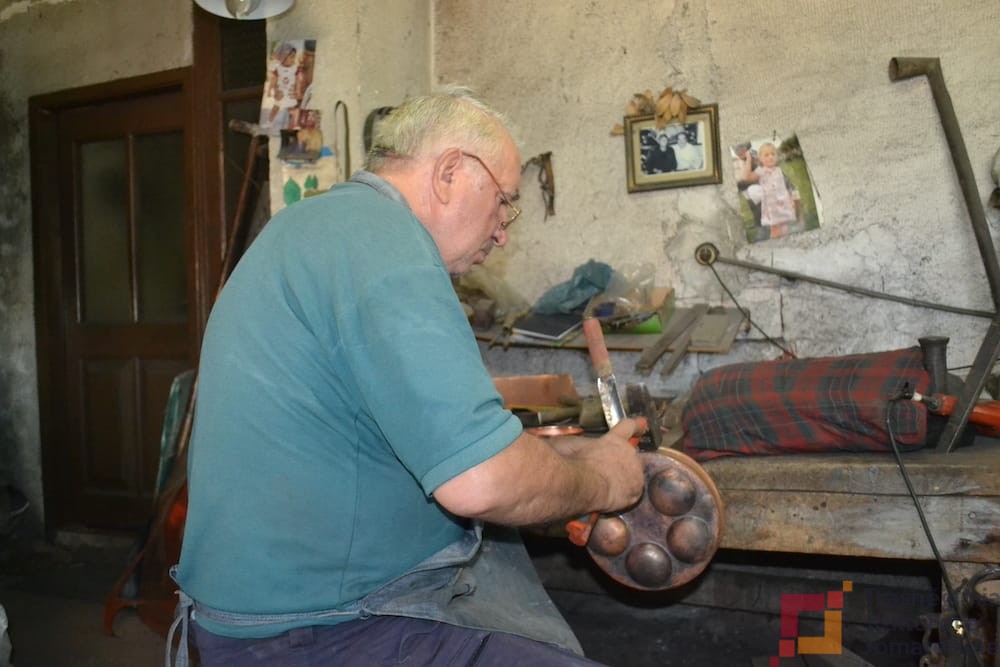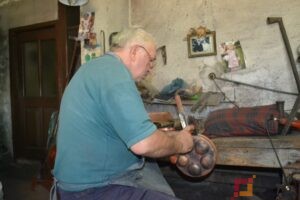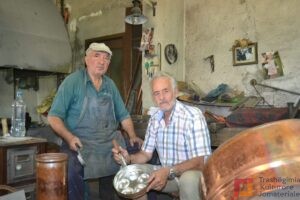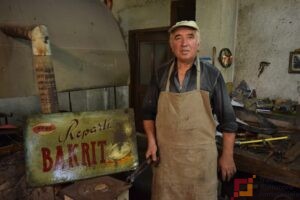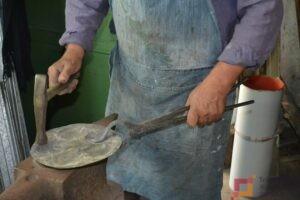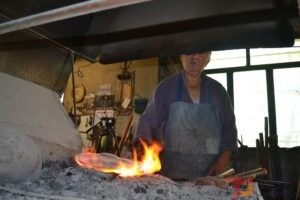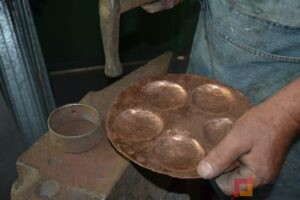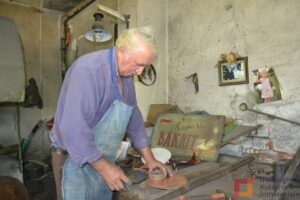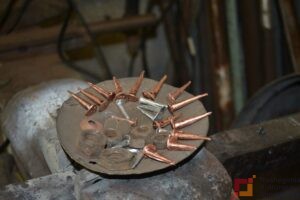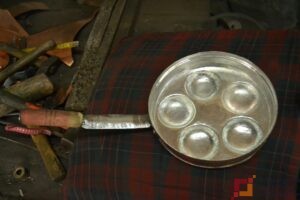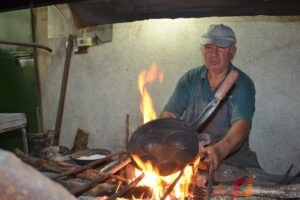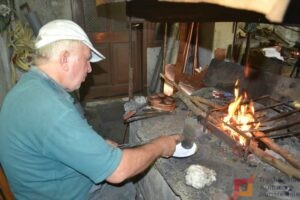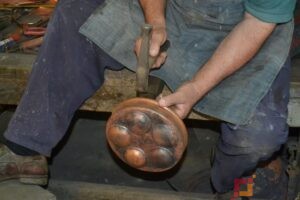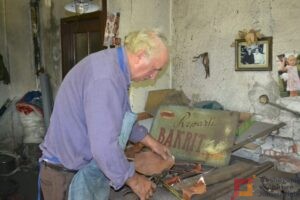The handicraft production of qifqi hollow frying pan is one of the rarely found elements of our intangible cultural heritage, originating as early as the beginning of rice being used in the southern part of the country.
This exceptional type of pan is used to prepare Qifqi, a traditional dish of Gjirokastra region. Qifqi is a mixture of boiled rice with eggs and herbs (mint and black pepper), baked (fried) only in this type of pan.
The qifqi hollow frying pan is made of rolled copper material. Its distinct feature is that this type of pan does not have a flat bottom, but a concave-shaped one. It is produced as a 5- or 7- hole pan, made typically from copper as it conducts best the heat.
The hollow frying pan consists of two elements, the cooking body where the holes and 4 cm high sides are formed, and the handle with an average length of 35-40 cm. Unlike the pan body which is made from copper, the handle is made from iron. The handle and the pan body are assembled with copper rivets made ready by the metalsmith.
Depending on the required size of the pan, a copper sheet is cut into a circular shape with hand-operated shearing tools. A fine-tip metallic marker is used to sketch out the holes across a circular ring, which makes a set of marks on the copper sheet. Supported on an anvil, the copper sheet is fixed on the steel ring and each hole drawn on the copper sheet is then hammered. The copper surface is curved and holes begin to take shape. These holes open up to a certain extent. To enhance the ductility of the copper surface, the pan is heated, and each hole is repeatedly hammered to reach the required depth.
The handle is made from a piece of rolled iron with a wooden handle mounted on one side. Two copper rivets are used to fasten the handle onto the pan body.
After this stage, the copper pan is cleaned up with hydrochloric acid. It is thereupon cleaned up with sal ammoniac and is tin coated. To achieve high-quality tinning, the pan is occasionally rubbed with pure heat-resistant cotton.
Making a hollow frying pan takes 6 to 8 hours.

